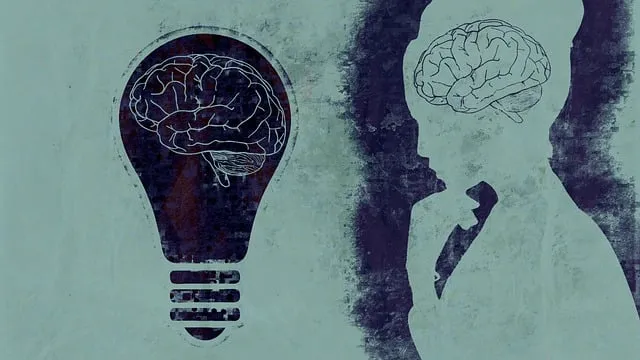The Kaiser Permanente behavioral health center in Northglenn offers critical Crisis Intervention Team (CIT) training, empowering professionals with holistic techniques like Mindfulness Meditation and Social Skills Training. This program enhances recovery outcomes by providing tailored support during acute emotional crises. Beyond its clinical role, the center acts as a community hub, training CITs to build mental resilience and prevent depression. Effective CIT programs, emphasizing empathy and burnout prevention, strengthen communities' ability to manage mental health crises, foster cultural sensitivity in healthcare, and promote resilience among individuals and providers.
Crisis intervention team (CIT) training programs are essential resources in behavioral health, equipping professionals to handle mental health crises effectively. This article explores the critical role of CITs and highlights the Kaiser Permanente Behavioral Health Center Northglenn as a leading hub for training and support. We delve into key components of successful training programs, their profound benefits, and the impact they have on preparing communities to respond to mental health emergencies.
- Understanding Crisis Intervention Teams: A Vital Resource in Behavioral Health
- Kaiser Permanente Behavioral Health Center Northglenn: A Hub for Training and Support
- Key Components of Effective Crisis Intervention Team Training Programs
- Benefits and Impact: Preparing Communities for Mental Health Crises
Understanding Crisis Intervention Teams: A Vital Resource in Behavioral Health

Crisis Intervention Teams (CITs) are a vital resource within behavioral health centers, such as the Kaiser Permanente behavioral health center in Northglenn. These teams consist of trained professionals who respond to individuals experiencing acute emotional or psychological crises. By providing immediate support and de-escalation techniques, CITs play a crucial role in preventing worse outcomes and promoting recovery.
The training programs for these interventions focus on a multi-faceted approach, incorporating skills like Mindfulness Meditation to enhance emotional regulation, Social Skills Training to improve communication during high-stress situations, and Coping Skills Development to equip individuals with effective strategies for managing future crises. This holistic training ensures that CIT members can offer comprehensive support tailored to each individual’s unique needs.
Kaiser Permanente Behavioral Health Center Northglenn: A Hub for Training and Support

The Kaiser Permanente Behavioral Health Center Northglenn stands as a beacon of hope and support for those in need of crisis intervention services. This center is not just a facility; it’s a hub for comprehensive training and education, dedicated to empowering individuals with the skills required to handle crises effectively. Through various programs, they offer a safe space for learning self-awareness exercises and cultivating positive thinking, which are essential tools in preventing depression and fostering mental resilience.
The center’s commitment to community extends beyond its walls, as it facilitates training sessions for crisis intervention teams, ensuring that support is readily available to those facing emotional or psychological emergencies. By investing in these programs, Kaiser Permanente Behavioral Health Center Northglenn plays a vital role in creating a network of resilient individuals capable of providing immediate assistance and guiding others toward recovery.
Key Components of Effective Crisis Intervention Team Training Programs

Effective crisis intervention team (CIT) training programs are meticulously designed to equip healthcare professionals with the skills needed to manage and de-escalate critical situations. At the Kaiser Permanente behavioral health center in Northglenn, for instance, CIT training emphasizes a multi-faceted approach that combines technical knowledge, empathy, and resilience-building. This holistic curriculum ensures that providers not only learn evidence-based interventions but also develop emotional well-being promotion techniques to navigate the high-stress environments they frequently encounter.
A key component of these programs is burnout prevention strategies for healthcare providers. By integrating practices that mitigate stress and promote self-care, CIT training recognizes the importance of maintaining emotional resilience in the face of chronic demands. Additionally, public awareness campaigns development plays a significant role in fostering community engagement and understanding of mental health crises, thereby enhancing the overall effectiveness of crisis intervention efforts.
Benefits and Impact: Preparing Communities for Mental Health Crises

Crisis intervention team training programs play a pivotal role in equipping communities with the tools to navigate mental health crises effectively. By investing in such initiatives, organizations like the Kaiser Permanente behavioral health center in Northglenn are fostering a culture of resilience and support. These programs empower individuals to recognize signs of distress, offer immediate assistance, and connect those in need with appropriate resources. The impact extends beyond individual lives; it strengthens community bonds, ensuring everyone feels supported during challenging times.
The benefits are multifaceted. Training fosters cultural sensitivity in mental healthcare practice, promoting understanding and empathy towards diverse communities. It also instills Mind Over Matter principles, encouraging individuals to view challenges as surmountable rather than insurmountable. Moreover, these initiatives incorporate Burnout Prevention Strategies for Healthcare Providers, recognizing the importance of self-care and sustainable practices to maintain optimal performance and well-being in high-pressure environments.
Crisis intervention team (CIT) training programs, such as those offered at the Kaiser Permanente Behavioral Health Center Northglenn, play a pivotal role in equipping communities with the skills to handle mental health crises effectively. By focusing on key components like situational awareness, de-escalation techniques, and collaborative care, these programs empower individuals to make a tangible difference. The benefits extend far beyond individual lives saved; they foster a more supportive and resilient community, where everyone has access to the resources needed to navigate mental health challenges. Through ongoing training and support, CIT members become a vital resource in behavioral health, ensuring that crises are met with compassion, professionalism, and swift intervention.






